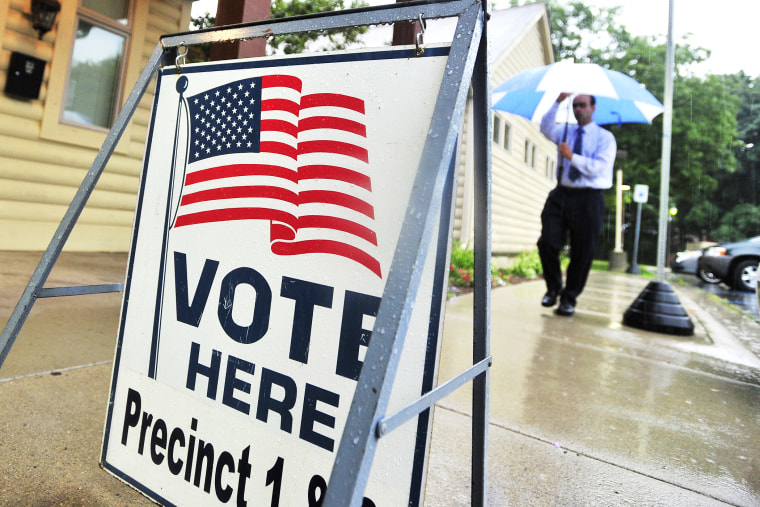Loyola University Law School professor Justin Levitt is a national expert on democracy and election administration, and when he presents the results of a "
comprehensive investigation" into voter impersonation, he doesn't use the word "comprehensive" lightly.
Indeed, the professor has looked into every "specific, credible allegation that someone may have pretended to be someone else at the polls, in any way that an ID law could fix." This includes every election in the United States from 2000 through 2014, including "general, primary, special, and municipal elections."
In that time, "more than 1 billion ballots were cast" by Americans. And how many instances of voter impersonation -- the kind of fraud voter-ID laws are intended to address -- did
Levitt find?
So far, I've found about 31 different incidents (some of which involve multiple ballots) since 2000, anywhere in the country. [...] Some of these 31 incidents have been thoroughly investigated (including some prosecutions). But many have not. Based on how other claims have turned out, I'd bet that some of the 31 will end up debunked: a problem with matching people from one big computer list to another, or a data entry error, or confusion between two different people with the same name, or someone signing in on the wrong line of a pollbook.
Note, we're not talking about 31 percent; we're talking about 31 separate incidents, some of which may turn out to be nothing.
Kevin Drum
added that if every one of these instances "turns out to be a genuine case of fraud, that's a fraud rate of 0.00002%."
Just so we're clear, Republican policymakers have launched a national campaign, imposing the most severe voting restrictions since the Jim Crow era, all the while characterizing voter fraud as a national scourge that can only be addressed through voter-ID laws.
Except the only genuine fraud here has been the GOP argument.
These conspiracies were the pretext for the voter ID laws that have now been passed in 34 states. And the arguments in many of those states have reached an absurdly high pitch. In Virginia, for example, Republicans are saying that the ID card required in their law has to be current; if you happen to let your driver's license expire, you can't vote, even though the photo on the card clearly demonstrates your identity. The state's Democratic attorney general, Mark Herring, says that's unconstitutional. But neither the Constitution nor plainly visible reality is likely to halt the Republican crusade to keep certain people from participating in democracy.
Right. "Certain people."
What's more, note this isn't just an academic exercise. Not only have most states approved these wildly unnecessary restrictions, but there are ongoing cases pending on the matter, including a challenge to Wisconsin's voter-ID law imposed by state Republican officials.
As Zack Roth
reported yesterday, Attorney General Eric Holder continues to intervene in these cases, each time siding with voting-rights advocates.
